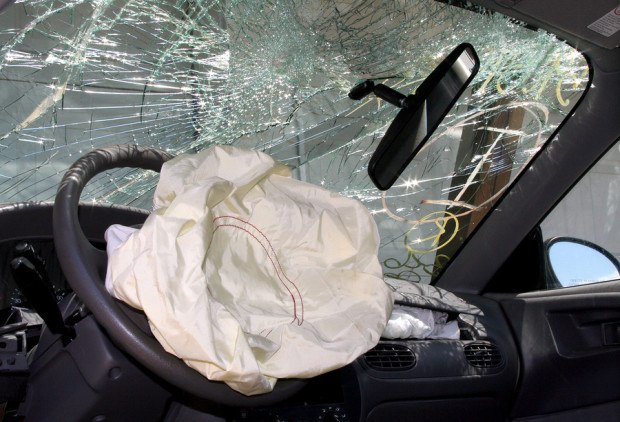Potential rescuers of Japan’s Takata Corp have extended talks, already in their 14th month, for a deal to take over the air bag maker at the heart of the auto industry’s biggest safety recall, people briefed on the process said.
Car-parts maker Key Safety Systems Inc (KSS) and Bain Capital LLC are the preferred bidder for Takata, whose faulty air bags have been blamed for at least 16 deaths worldwide.
Discussions that include the steering committee tapped by the air bag maker to oversee the search for a financial sponsor, automaker clients, suitors and bankers are now likely to run on until at least end-May, three people told Reuters.
The parties have already moved beyond an informal, self-imposed end-March deadline to thrash out a deal.
Recent talks, described by two participants as “chaotic”, have focused on issues such as an indemnity agreement to cover reimbursement costs for air bag recalls, estimated to be as high as $10 billion.
KSS, a U.S.-based maker of air bags, seatbelts and steering wheels, and Bain, a U.S. private equity fund, are still conducting due diligence, one of those close to the matter said.
Another said KSS – which was bought last year by China’s Ningbo Joyson Electronic Corp – and Bain plan to offer around 200 billion yen ($1.8 billion) for Takata.
A spokesman for Takata and the steering committee declined to comment. A spokeswoman for KSS also declined to comment.
Automakers including Honda Motor Co, which have been footing the bill for recalls dating back to 2008, want Takata restructured through a transparent court-ordered process such as bankruptcy, which would wipe out the firm’s shareholder value, four automaker sources have told Reuters.
“There’s no other option,” said one automaker executive. “A privately arranged restructuring would require them to repay billions. They can’t afford that.”
But Takata, the world’s second-biggest air bag maker, is holding out for a “private restructuring” that would preserve some of the founding Takada family’s 60 percent stake.
Battered Reputation
The clock is ticking for Takata, whose stock has cratered 90 percent since the recall crisis began escalating in early 2014.
U.S. federal Judge George Steeh in February cited the potential for Takata to collapse if it couldn’t find a buyer.
Takata pleaded guilty in Steeh’s District Court to a felony charge as part of a $1 billion settlement with automakers and victims of its inflators, which can explode with excessive force, blasting shrapnel into passenger areas.
The company, which began as a textiles firm and became an early maker of seatbelts, is also trying to settle legal liabilities in the United States, where it faces a class-action lawsuit, and other countries where its air bag inflators have exploded.
Takata has denied speculation it would have to seek some form of bankruptcy protection from creditors in the United States or Japan.
The company has not been allowed to simply disappear as the auto industry needs it to keep producing the millions of inflators needed to replace recalled air bags – though some automakers have switched to rival suppliers.
Also, the government in Tokyo is keen to preserve a major Japanese maker of air bags in a global industry dominated by just three companies.
($1 = 108.8300 yen) (Additional reporting by, Taro Fuse, Naomi Tajitsu and Junko Fujita.)





















 AI Claim Assistant Now Taking Auto Damage Claims Calls at Travelers
AI Claim Assistant Now Taking Auto Damage Claims Calls at Travelers  Beyond Automation: The Emerging Role for Contextual AI in Insurance
Beyond Automation: The Emerging Role for Contextual AI in Insurance  State Farm Mutual to Pay $5B Dividend to Auto Insurance Customers
State Farm Mutual to Pay $5B Dividend to Auto Insurance Customers  Viewpoint: Runoff Specialists Have Evolved Into Key Strategic Partners for Insurers
Viewpoint: Runoff Specialists Have Evolved Into Key Strategic Partners for Insurers 


